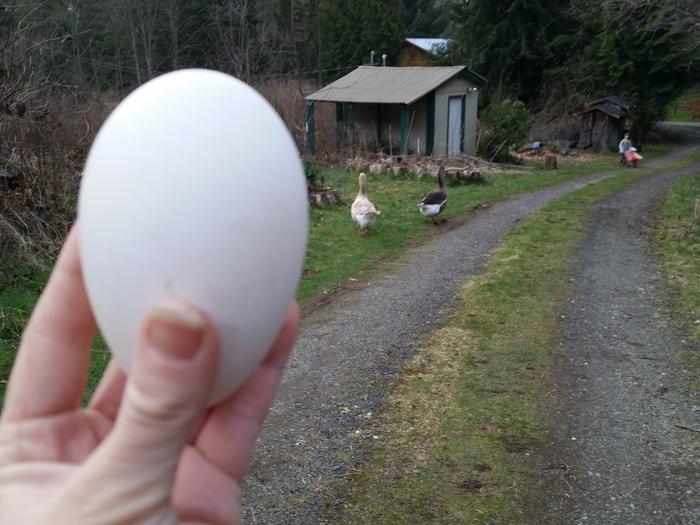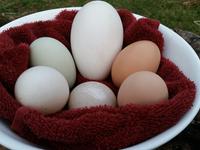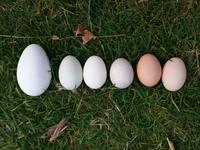
 1
1




Whoah!! Check out this permie deal!! https://permies.com/w/homesteading-bundle?f=232
"The only thing...more expensive than education is ignorance."~Ben Franklin. "We can easily forgive a child who is afraid of the dark; the real tragedy of life is when men are afraid of the light." ~ Plato
 4
4




Visit Redhawk's soil series: https://permies.com/wiki/redhawk-soil
How permies.com works: https://permies.com/wiki/34193/permies-works-links-threads
 4
4




 3
3




Education: "the ardent search for truth and its unselfish transmission to youth and to all those learning to think rigorously, so as to act rightly and to serve humanity better." - John Paul II
 4
4




 4
4









 4
4




Education: "the ardent search for truth and its unselfish transmission to youth and to all those learning to think rigorously, so as to act rightly and to serve humanity better." - John Paul II
 4
4




Catherine Carney
Rifflerun Farm
 4
4




 1
1




Visit Redhawk's soil series: https://permies.com/wiki/redhawk-soil
How permies.com works: https://permies.com/wiki/34193/permies-works-links-threads
 3
3




 1
1




 1
1




Saucey Mama wrote:Out story, to answer your question: We first bought and raised a female Toulouse named Mother. The children are the ones who've taken care of her since she was a wee gosling, so I don't know if it is from their interaction with her, the fact that she's female, or just her personality, but she's incredibly docile. In fact, she's so docile she wasn't making a good guard! Then our friends who also have gaggle of children told us they were having problems with their male Toulouse, apparently he was too good at guarding and killed their rooster and attacked one of them. Well, we really wanted to hatch goslings, so we said we would take him to breed with ours. We named him Father and had a cute little prenuptial ceremony (neck tie included!) when we introduced the two to each other. Upon getting him home, we noticed an immediate difference in their temperaments- he has been very guarding since day 1 of coming home and man he is SO LOUD!!! So he does a great job warning us any time a predator is near. Knowing that he has a history of aggressiveness I have not let my smaller children (under 8ish) in the run with him, and only allow my older children (9 & 11) to do the care. We have had no problems with him for a full year until now. They are definitely mating finally, as my husband and I witnessed it the other day, so she's laying fertile eggs and ever since he has become MEAN. He attacked both of my older sons this week, grabbing hold of their clothes with his bill, biting their hands and breaking the skin! And beating their legs with his wings so hard it left immediate bruising! My oldest says it feels like he's waking you with a metal poll. Well yesterday my 9 year old went to put out a fresh waterer and apparently in doing so got too close to Mother. Father attacked for the last time. I fear he could seriously injure a smaller child or even a larger one if they happened to trip and become below his eye level. Father is now off feed, he'll be dinner next weekend. It's just not worth the risk to me and I share my story to say- yes, they can be dangerous!




Annie Collins wrote:
Saucey Mama wrote:Out story, to answer your question: We first bought and raised a female Toulouse named Mother. The children are the ones who've taken care of her since she was a wee gosling, so I don't know if it is from their interaction with her, the fact that she's female, or just her personality, but she's incredibly docile. In fact, she's so docile she wasn't making a good guard! Then our friends who also have gaggle of children told us they were having problems with their male Toulouse, apparently he was too good at guarding and killed their rooster and attacked one of them. Well, we really wanted to hatch goslings, so we said we would take him to breed with ours. We named him Father and had a cute little prenuptial ceremony (neck tie included!) when we introduced the two to each other. Upon getting him home, we noticed an immediate difference in their temperaments- he has been very guarding since day 1 of coming home and man he is SO LOUD!!! So he does a great job warning us any time a predator is near. Knowing that he has a history of aggressiveness I have not let my smaller children (under 8ish) in the run with him, and only allow my older children (9 & 11) to do the care. We have had no problems with him for a full year until now. They are definitely mating finally, as my husband and I witnessed it the other day, so she's laying fertile eggs and ever since he has become MEAN. He attacked both of my older sons this week, grabbing hold of their clothes with his bill, biting their hands and breaking the skin! And beating their legs with his wings so hard it left immediate bruising! My oldest says it feels like he's waking you with a metal poll. Well yesterday my 9 year old went to put out a fresh waterer and apparently in doing so got too close to Mother. Father attacked for the last time. I fear he could seriously injure a smaller child or even a larger one if they happened to trip and become below his eye level. Father is now off feed, he'll be dinner next weekend. It's just not worth the risk to me and I share my story to say- yes, they can be dangerous!
This is a bit of sad story, both for goose and children. I wonder if one were to give consequences to a goose acting out, if that would possibly change the behavior. Consequences, both positive and negative, are part of nature, after all, and how we all learn. I have never had a goose so know little about them as far as direct interaction. But I have known a lot of dogs in my life and have been training them for decades. I have also had my share of cats. All were taught what was acceptable behavior and what wasn't through the use of positive and negative consequences, including our cats. It is amazing how much cats can be taught as far as behavior. With one of ours, as little as tossing a small pillow at him (not throwing it, just tossing it) was enough of a consequence for him to stop the unwanted behavior. If a pillow wasn't available then something else that would not hurt him, but make clear that whatever he was doing was not acceptable. These type of things work very well. I wonder if there would have been something one could do to make clear to the goose in no uncertain terms that the behavior he was doing was unacceptable and thereby put a stop to it? In my world, giving a clear, swift consequence that will stop a very unwanted/dangerous behavior is better than killing the animal. But like I said, I don't know if that is possible with a goose. I somehow get the sense, however, that it would be. I have seen my share of dogs that were very aggressive that people said would not be able to be changed and should be put down have a complete turn-around in their behavior through good, fair, and consequent training. I've also seen a couple of horses be taught to stop aggressive behavior and be saved from being put down. But like I said, I have never had a goose. After reading these stories, however, I'd love the experience of a relationship with one!
Come join me at www.peacockorchard.com





|
It wasn't my idea to go to some crazy nightclub in the middle of nowhere. I just wanted to stay home and cuddle with this tiny ad:
Learn Permaculture through a little hard work
https://wheaton-labs.com/bootcamp
|





